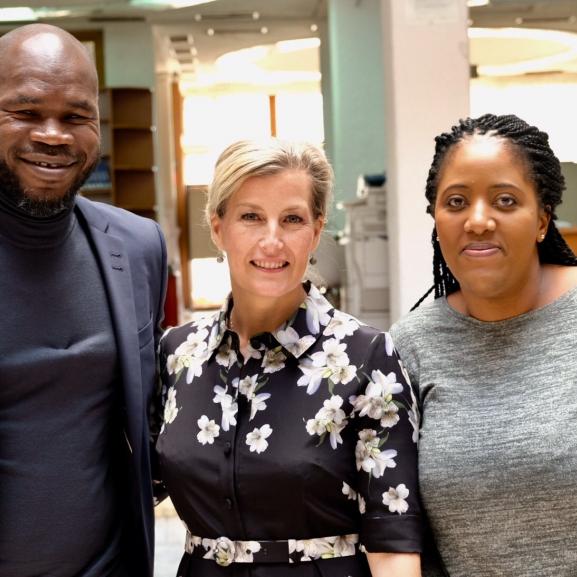Survivor activists speak to Inquiry on ‘Refugees Welcome'
Jonathan and Kolbassia from Survivors Speak OUT (SSO), a network of activists who are former Freedom from Torture clients, gave evidence this week to an inquiry into the experiences of newly arrived and newly recognised refugees in the UK.
The inquiry was launched in July by the All Party Parliamentary Group on Refugees and gave Survivors Speak OUT an opportunity to provide written evidence and on 7 November speak in Parliament about the issues that have affected network members and other clients at Freedom from Torture as refugees and survivors of torture.
Jonathan and Kolbassia emphasised two barriers to integration for refugees: the negative discourse by both some media and some politicians about lone male refugees, and the transition for refugees between asylum support and mainstream support, after refugee status has been gained.
They also drew attention to the UK's history of welcoming refugees in contrast with a sometimes hostile present environment due to the increasing negative rhetoric about refugees in the media and politics.
SSO co-founder Kolbassia said:
"I can't even tell friends that I'm a refugee because when I hear them speak about refugees I feel ashamed, and I don't want them to look at me differently. This toxic discourse that has developed now means that seeking refuge has the burden of stigma and shame attached to it."
He also highlighted how recent calls within Parliament for male refugees to be educated on how they treat women in the UK have fuelled inflammatory rhetoric about male refugees as a security risk.
SSO network member Jonathan said:
"I was tortured because I stood up for young women in the school that I taught in."
And Kolbassia added:
"You can’t imagine how hard it is to convince local people in my community that I am not what you think I am: what you read in the paper; what you hear from the lips of politicians."
Jonathan and Kolbassia, representing the views of all Survivor Speak OUT members, stressed that negative discourse about refugees presents a major barrier to integration and creates distrust in communities. Members called on politicians to lead by example by representing Britain as a tolerant and welcoming place and by focusing on the positive stories of how refugees are contributing to the UK.
Jonathan and Kolbassia also shared the issues torture survivors face when transitioning from asylum status to mainstream support. This process puts new refugees at risk of destitution, by allowing only 28 days to negotiate unfamiliar bureaucracy in order to secure welfare support as well as find a new home before eviction from asylum accommodation.
Jonathan said:
"Once I got my refugee status I thought everything was going to be okay, but it was the beginning of another difficult time.
I made my application for housing, but as a single man, I would not meet any priority criteria, despite my past experiences of torture in my home country."
For members of Survivor Speak OUT and Freedom from Torture clients, these barriers obstruct refugees' attempts to build new lives in their communities and contribute to society.
Freedom from Torture’s Survivor Activism Manager Shameem Sadiq-Tang said:
"It’s imperative that people with lived experiences of the issues are influencing discussions and shaping solutions so that outcomes are practical, meaningful and respond to the needs of refugees. More time and investment is needed to ensure that this approach is mainstreamed throughout any decision making process."







